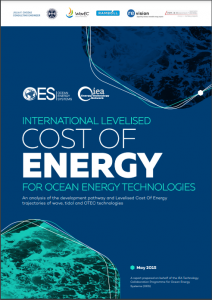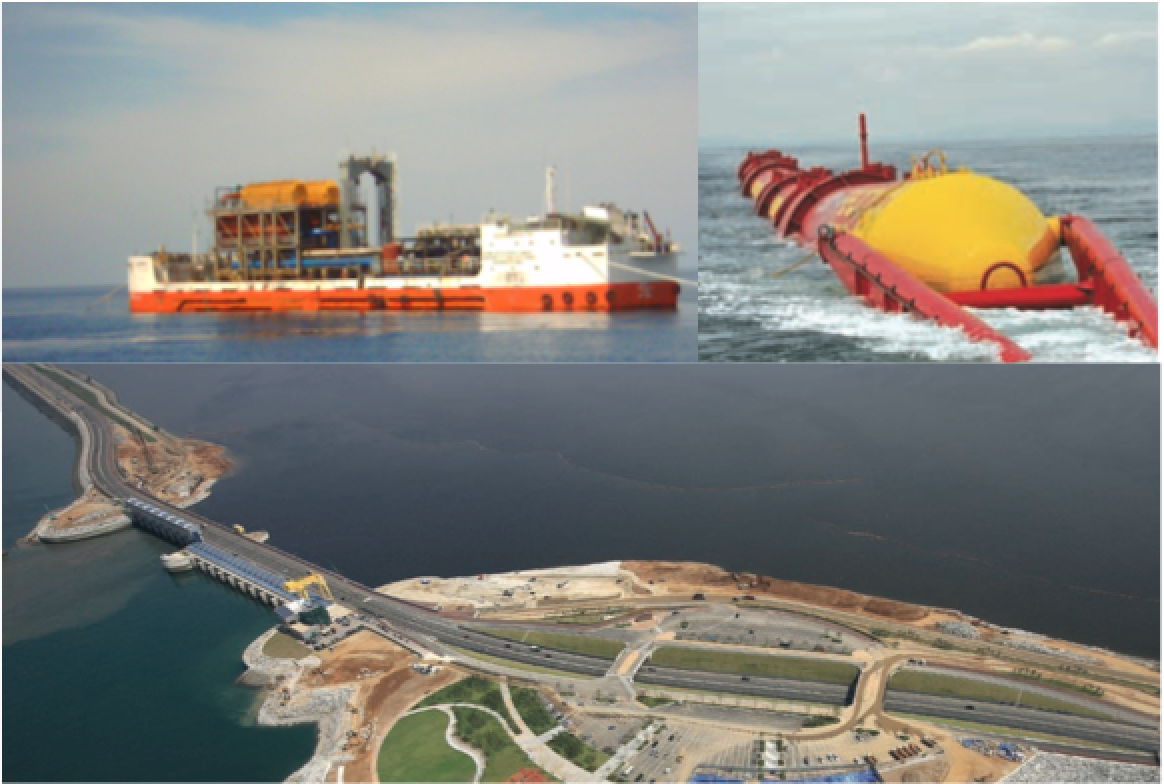LCOE assessment for Wave, Tidal and OTEC
The final document can be downloaded here. It contains an analysis of the development pathway and Levelised Cost Of Energy trajectories of wave, tidal and OTEC technologies.
This study was commissioned by Ocean Energy Systems (OES) and developed by an international team: Julia F. Chozas, Consulting Engineering, The University of Edinburgh, WavEC, RAMBOLL Group A/S, Re Vision Consulting and FOT-K Consortium.
Summary
The aim of this project is to provide the Ocean Energy Systems (OES) of the International Energy Agency (IEA) with an authoritative view on what cost reductions are feasible at a global level regarding wave, tidal and OTEC systems.
The assessment of the Levelised Cost of Energy (LCOE) for ocean energy devices represents a critical element of understanding in the development of ocean energy array projects.
By undertaking a bottom-up assessment of the cost components of leading wave, tidal, and OTEC systems, this work will investigate the development of these devices or systems, and their integration into commercial arrays and large-scale power plants.
This way, it will be possible to develop an accurate and representative LCOE that the sector is capable of achieving, as the final goal for all wave, tidal and OTEC technology developers is to generate power at a cost that is competitive with alternative forms of generation.
The scale of the potential of wave, tidal and OTEC energy is without question. Increasing levels of interest are being given to these new renewable technologies, however a significant challenge remains regarding the high cost of energy, and identifying optimum routes for future cost optimization.
Project description
The scale of the potential of wave, tidal, and OTEC energy is without question. Increasing levels of interest are being given to these new renewable technologies, however a significant challenge remains regarding the high cost of energy, and identifying optimum routes for future cost optimization.
The goal of this project is to engage a large number of international stakeholders to deliver an internationally reliable and credible Levelised Cost of Energy (LCOE) assessment for wave, tidal and OTEC technologies, based on international projects. Also, the likely future LCOE reduction trajectories of ocean energy projects at a global scale will be delivered.
Immediate benefits that will result from this project include the strengthening of international networks and the increasing of international collaboration – both of which are urgently required.
Longer term international benefits include enhanced deployment of ocean energy through collaboration of supply chain and development activity across a wider range of stakeholders at an international level. International collaboration is recognized as a strategic enabler of accelerated deployment of ocean technology, building upon an understanding of the far reaching implications of ocean energy development, and the diverse range of locations in which ocean energy activity could make a valuable contribution to the energy mix.
This project will further the existing state of the art by filling gaps in current knowledge and understanding; and delivering specific international consensus on LCOE – based on the wide consensus from key experts in industry, government and leading research centers across a wide representation of nations.
An additional benefit of this project will be the generation of data that will be suitable for use in the IEA’s Energy Technology Perspectives (ETP) modelling.
ETP model applies a combination of back casting and forecasting over three scenarios from now to 2050. It offers a comprehensive, long-term analysis of trends in the energy sector – and of technologies that are essential to achieving an affordable, secure and low-carbon system. All technology options introduced in ETP 2014 are already commercially available or at a stage of development that makes commercial-scale deployment possible within the scenario period. IEA ETP report uses the Markal-TIMES model.
For each technology, CAPEX, OPEX and capacity factor values will be provided, allowing improved ocean energy input data for future modelling runs.
Project partners are Consulting Engineer Julia F. Chozas (Denmark), University of Edinburgh (UK), WavEC – Offshore renewables (Portugal) and Re Vision Consulting (USA). Other than that, Ramboll (Denmark) and Fot-K Consortium (Nigeria) act as project advisors.
The project has an 8-month timeframe. It runs from July 2014 to March 2015.
Read here the Spanish version.

